Corruption of governance led to Beirut’s deadly explosion disaster
Australian journalist Eliza Harvey, who recently lived in Beirut for two years, remembers the city she came to love as a vibrant place filled with strong people. But Beirut’s allure couldn’t hide the corruption that culminated in this week’s tragic explosion.
NSW
Don't miss out on the headlines from NSW. Followed categories will be added to My News.
- Rob Shehadie: ‘Beirut will rise from the rubble again’
- Aussie explosion fears as ‘floating bomb’ linked to Beirut blast
‘Hello, bonjour, kifek Habibti, what would you like?”
The bearded, plaid waistcoat wearing bartender shouts over the crowds milling at the bar for after-work drinks.
It’s pretty early by Beirut standards. The real action doesn’t get started until midnight.
But for those of us with young kids, 6pm is party time.
I order a “Made in Beirut”: a cocktail with a lot of gin and a sprig of fresh rosemary.
Outside, I join the cool crowd. It could be Newtown, or Surry Hills, with young men in tight shirts and black square-rimmed glasses, women with springy brown curls cascading down over their bright summer dresses.
Conversations casually move from Arabic to French to English, punctuated by long draws on cigarettes and the constant beeping of mobile phones.
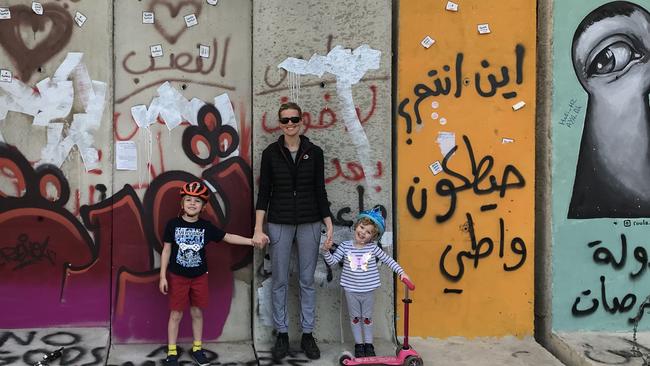
A few cocktails later, we roll down the road for dinner. There’s sophisticated Italian, or the bar that just sells hot pizza slices. A bit further down is burritos with pulled pork and lashings of hot chilli sauce. The new Asian fusion place with grilled calamari and plates of edamame beans. You never leave a Beirut restaurant hungry.
And maybe, if we’re feeling game, we’ll pick up a ‘traveller’ from the pop-up bar of miniature liquor bottles for the 10 minute walk home.
That was my version of a casual Tuesday night in Beirut. Or Wednesday, or Thursday — Beirutis like to go out most nights of the week. Particularly during summer, when a cool breeze blows in off the Mediterranean offering respite from the scorching August heat.
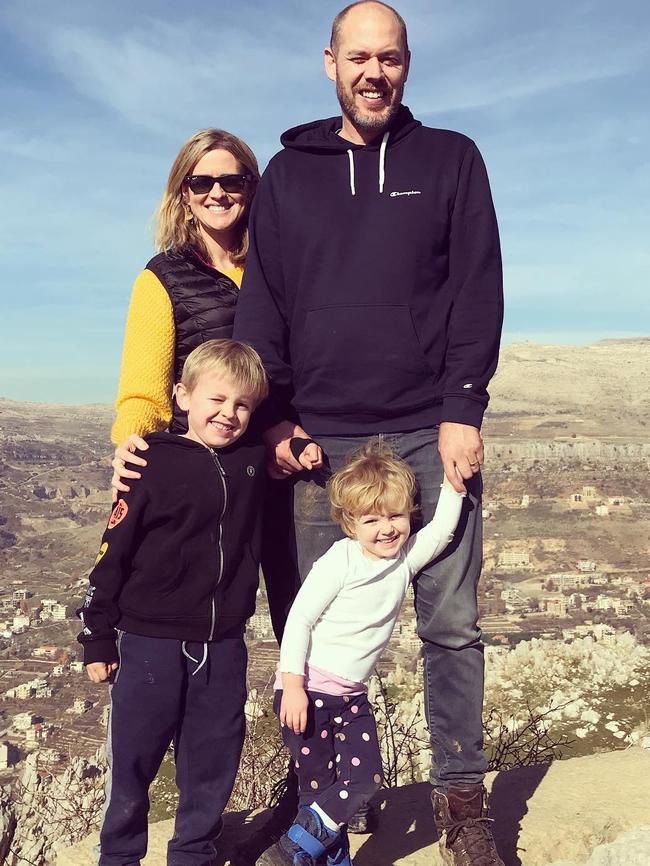
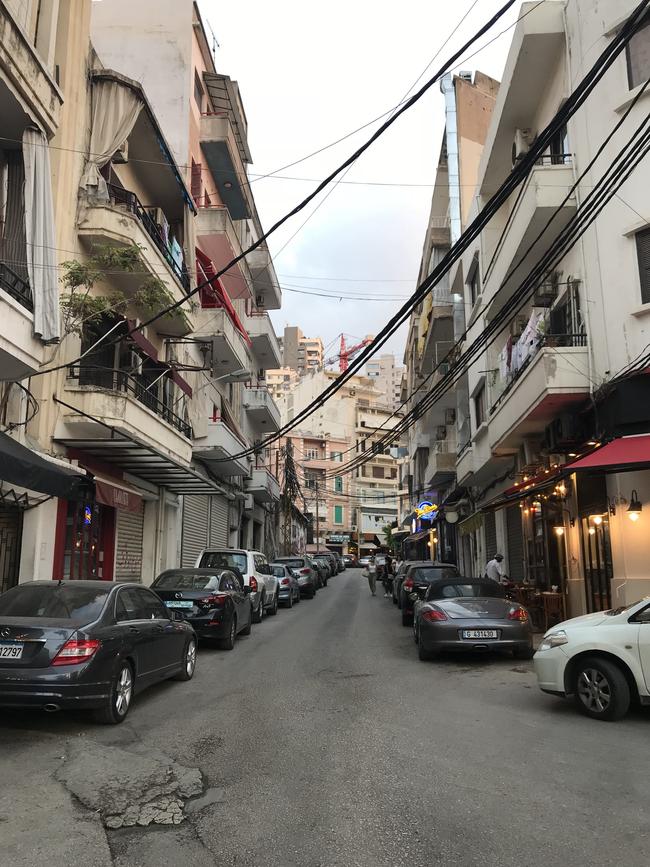
Gemmayze St, East Beirut, was my second home until a few months ago. I lived up the hill in the slightly more staid surrounds of Achrafieh. Gemmayze is just up from the Beirut port.
In the morning I’d swing by the Australian coffee shop ‘Sip’ for a flat white and yoghurt and muesli before walking 100m down the road to my office at a legal NGO which worked with refugees.
Sometimes, if I was really organised, I’d pop around the corner for some lunchtime yoga in the ground-floor of an old converted Ottoman-era mansion.
But mostly I’d pick up a cheap “manousche” or Lebanese pizza with cheese and zaatar and wander Gemmayze St. I loved the homewares stores with upholstered retro couches and wooden mirrors inlaid with mother of pearl. The custom jewellery stores with pendants and gemstones and big gold hoops.
Beirut was so romantic.
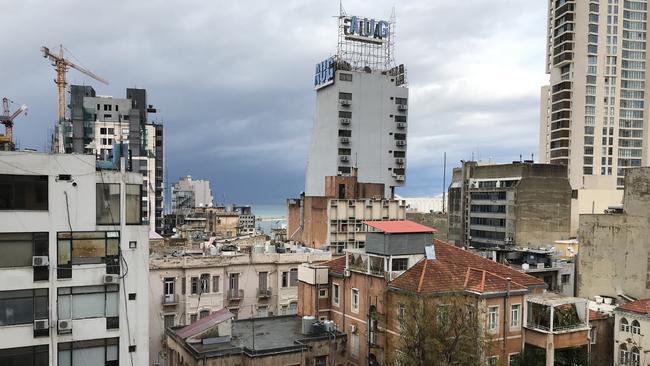
Every block had its corner store. The fresh fruit outside came in from the Bekaa Valley to the East, and sometimes from Syria.
There were shelves of biscuits and individually wrapped croissants, cigarettes and an old coffee machines that served $1 espressos in tiny paper cups.
I’d attempt use my Arabic. “Ana bdi wahad Daily Star (the English language newspaper)”.
The owner would laugh and reply in English “One newspaper? Yalla. Where you from?”
A Syrian man, or Bangladeshi, would rush around the shop finishing my order while we chatted away about the owner’s cousin in Punchbowl or an Aunt in Blacktown.
“What do you think of Beirut?” They’d ask me. I’d talk about the beautiful architecture and terrifying traffic. The vibrant, pulsating city that was often overwhelming but never boring.
“Yes but this place is run by crooks,” they’d say.
“They take our money, they are corrupt.”
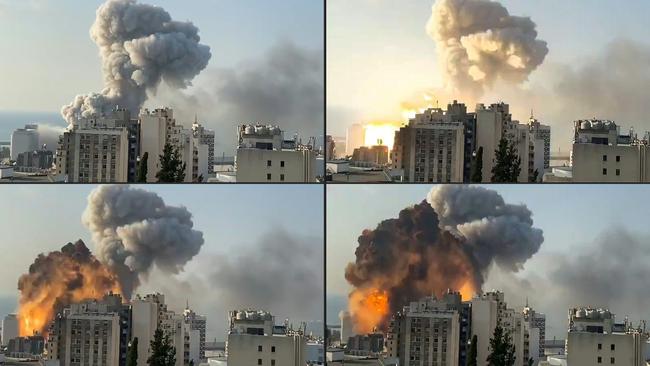
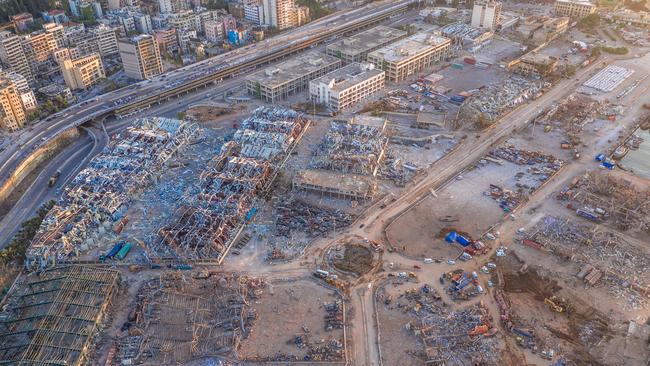
The best way to measure corruption in Beirut is by what hasn’t been done. The power generation system resembled the slums of my previous home in Jakarta, a much poorer city overrun by people.
Thirty years after the end of the Lebanese civil war, state-generated power still went out for three hours a day. You could download an app which told you what time your power would cut. For the wealthy, a generator would kick in.
You can’t drink clean water from the tap.
People tolerated it, mostly, until the cash-strapped government went one step too far in October 2019 and decided to tax WhatsApp calls and messages. It coincided with a terrible bushfire season which the authorities failed to contain because the country’s only firefighting helicopter hadn’t been serviced.
Lebanese took to the streets wrapped in flags and chanting ‘thawra’ or revolution. The government fell, and young girls in hijabs stood next to their mothers and neighbours from across the religious divide to call for change.
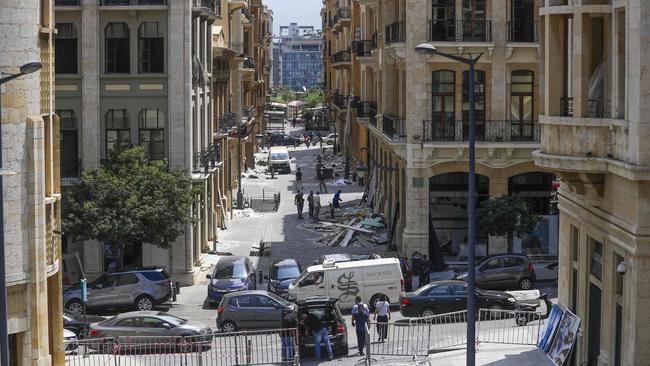
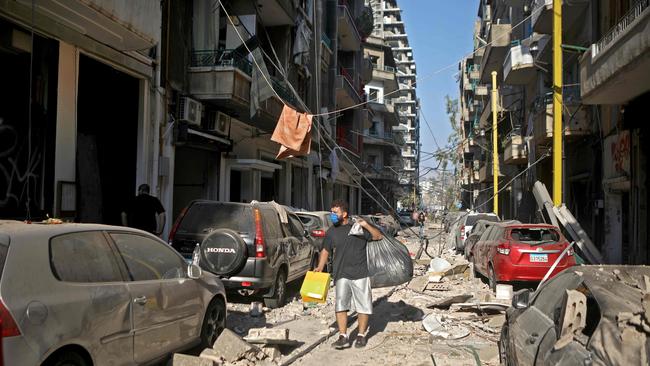
Ten months later and the joy and excitement of last summer has been replaced by despair.
First, the economic system collapsed. People couldn’t withdraw money from the bank. Then COVID-19 hit. The government ran out of fuel to power the electricity system and city fell into darkness at night.
But no one expected the corruption of woeful governance to result in such a such a disaster.
At 6pm local time on Tuesday, a fire broke out at the port. The vision shows a big plume of smoke, and something popping away in the fire that looks like fireworks.
And moments later, the fire sparks an enormous explosion from a warehouse that we subsequently learn was housing 2700 tonnes of ammonium nitrate.
The chemicals had been confiscated about six years earlier from a ship on its way to Africa which had sought shelter in Beirut and was subsequently impounded.
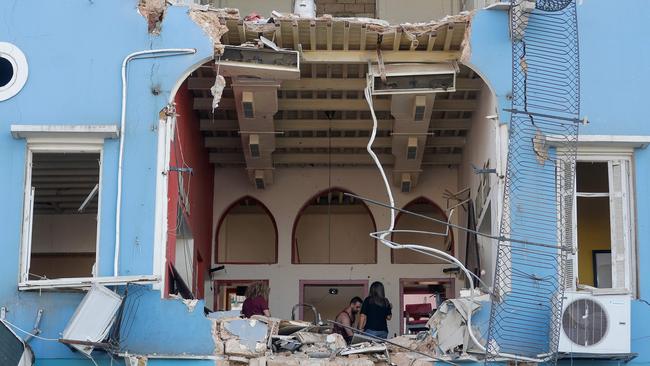
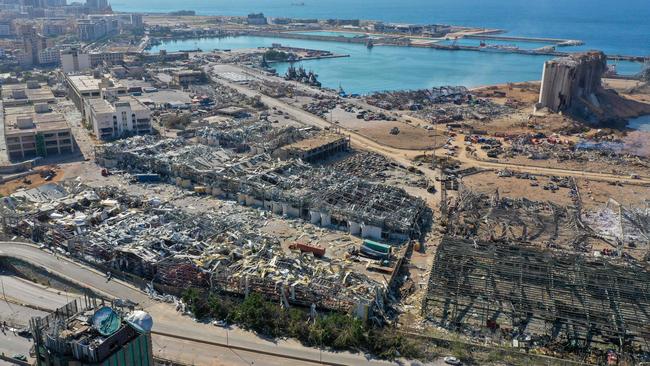
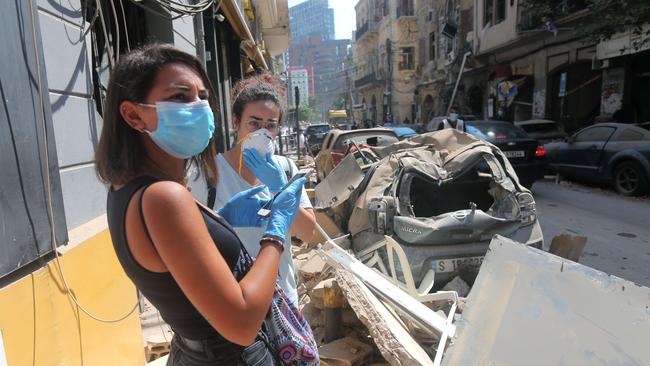
The Lebanese Prime Minister, Hasan Diab, conceded in the wake of the blast that the chemicals had been housed “without preventative measures”.
And this is where this story becomes so complex. Lebanon’s joie de vivre is linked to a reckless, casual attitude to rules. We complain in Australia about the nanny state. But we also expect basic standards of oversight and good governance.
Someone years ago decided to house an enormous volume of explosive material on the water’s edge, just 10 minutes walk from rare patch of open space where I taught my kids to ride their bikes. Another five minutes up to the fancy new apartment blocks overlooking the water and up to the bars of Gemmayze St.
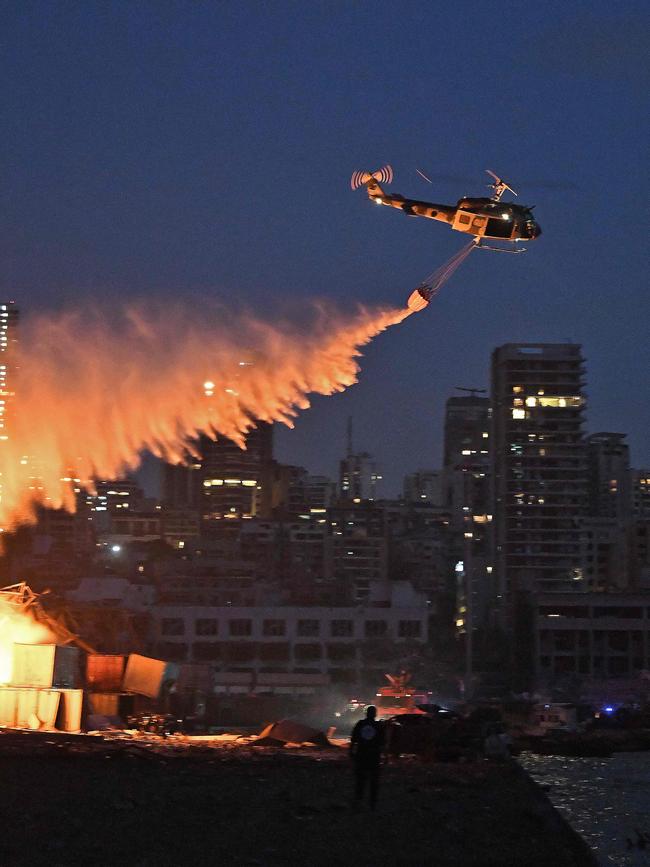
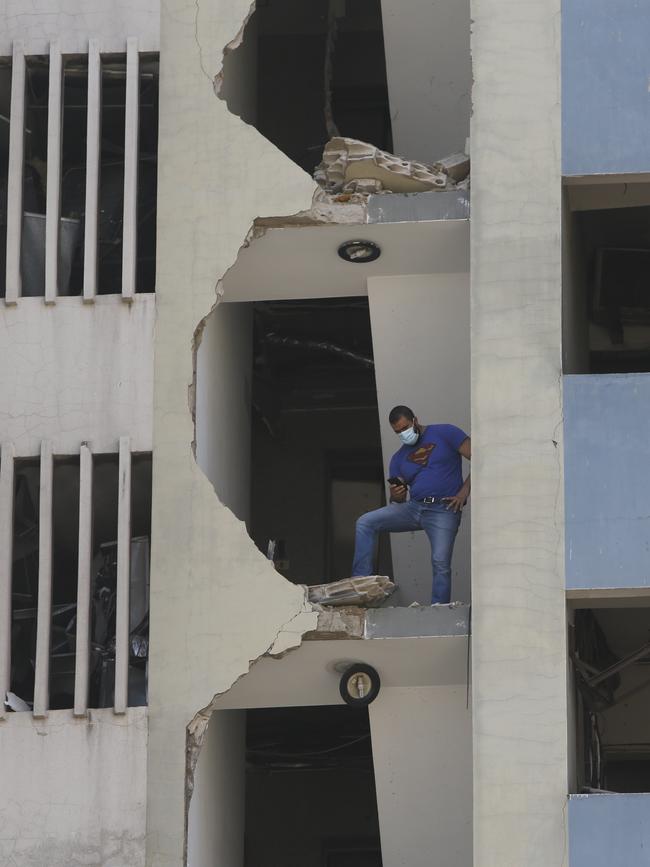
I wonder if someone thought they could make money by on-selling the materials. Were there any sprinklers in the warehouse? Was the material regularly checked? Did anyone think to check what was being stored nearby?
My old village of Gemmayze has been completely destroyed. The cafes and bars that helped make Beirut such a fun place to live have been torn apart by this week’s blast.
Sip cafe’s Aussie owner was severely injured. Beirutis died and were badly wounded on the street, hurled through the air by the blast wave, lacerated by broken glass or crushed by falling masonry.
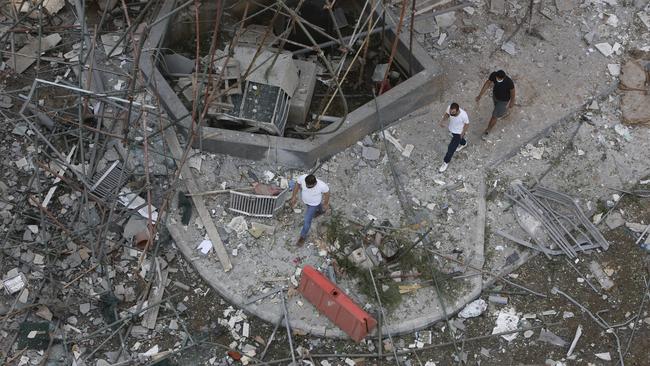
The fruit seller, the bartender, the hijab-wrapped revolutionary, the street kid … I wonder who lived and who died?
I hit the phones as my friends woke up the morning after the explosion. They were in their activewear, clutching brooms and a fresh coffee to clean up their friends’ houses.
“We are being ruled by reckless idiots,” says Farah Kanj, the mother of my daughter’s best friend at nursery school, speaking through her tears.
They worry about the chemical residue hanging around the city.
“But at least we have masks, Eliza,” says Rima Husseini, another friend from my book club.
That’s the trademark Lebanese dry wit and resilience I remember. Gosh it’s being sorely tested now.
What a terrible thing to happen in such a special place.
* Eliza Harvey is an Australian journalist who lived in Beirut from 2018 to 2020 and hosts podcast Long Distance Call
